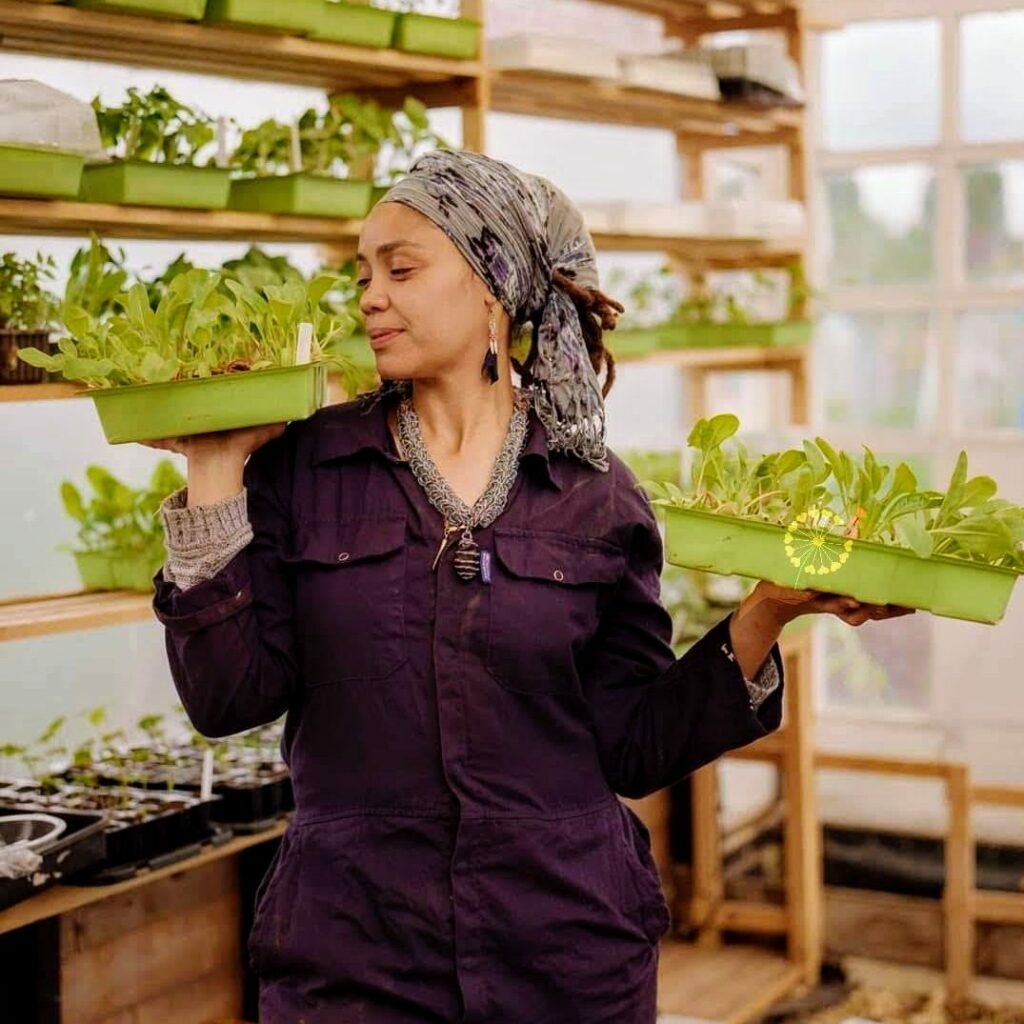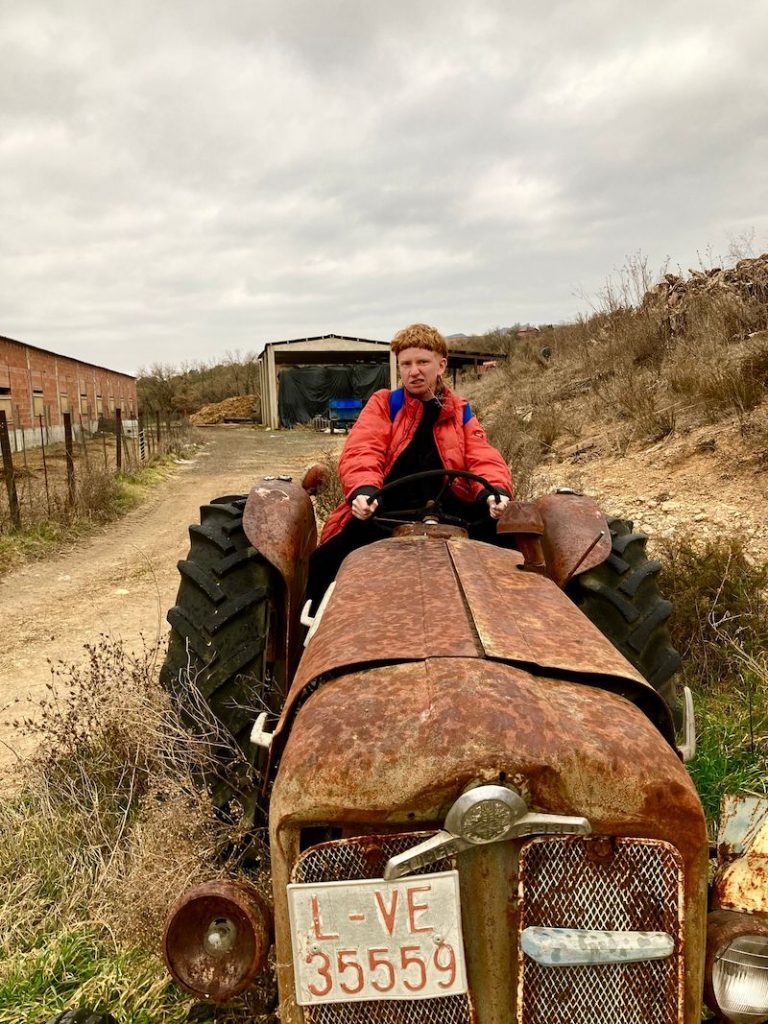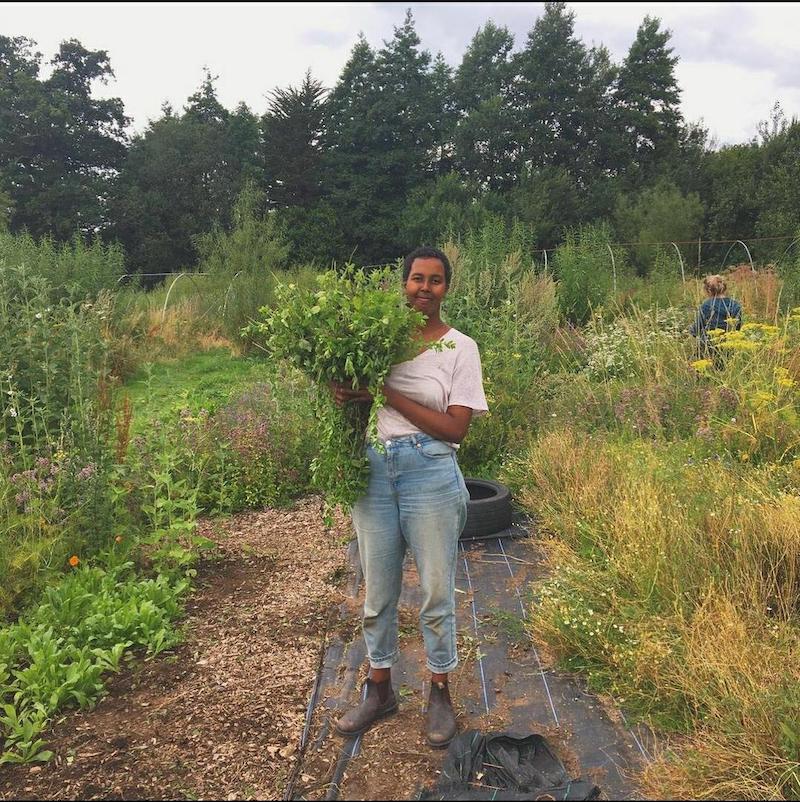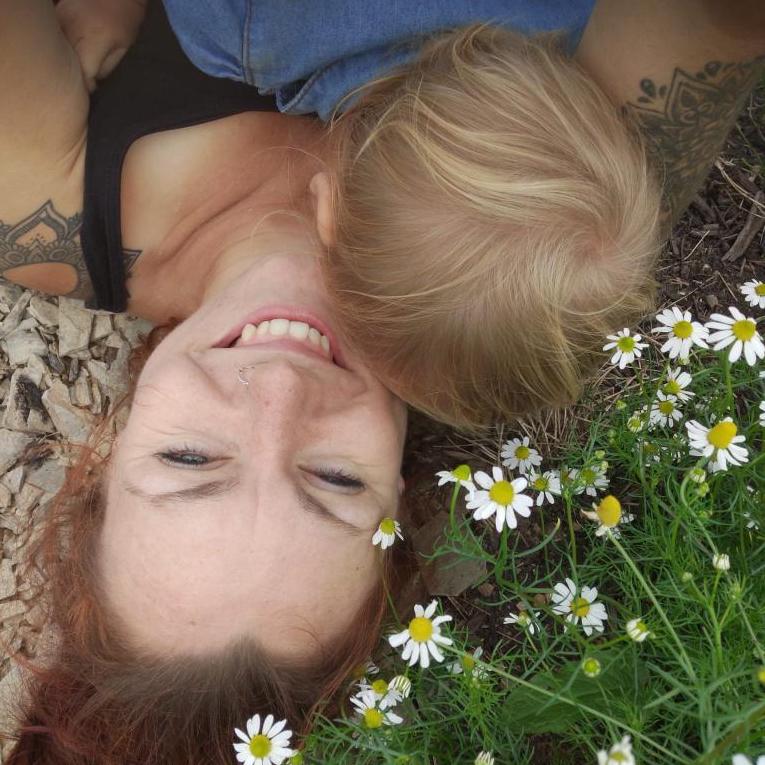This International Women’s Day, we wanted to shine a light on some of the inspirational women* within the Landworkers’ Alliance, to hear about their journey to where they are now, and their vision for the years ahead. Meet four remarkable landworkers who are pioneering the transition to better food and land-use systems…
(*the term women includes all who self define as women)
SOILSISTA SANDRA, GO GROW WITH LOVE

Introduce us to the project you are working on.
My project is an African centred holistic femme led project based in north London, called Women Leading With The Land. We invite women of African and Caribbean heritage to reconnect to the land to develop land and enterprise skills.
Why did you choose to work with the land?
I chose to work with the land because I wanted to create a healthier lifestyle for my family and those around me. I developed a deep connection to the land and built a life, rooted in honour of this symbiotic relationship and I love to share my traditional and holistic practices of growing food with children, women and families.
What do you think women of colour bring to the land as land workers?
Melanin rich women bring ancestral wisdom and cultural practices to the land as land workers. We share the art of storytelling and reverence for our indigenous ancient land. We honour and respect the land.
ZOE, MEMBER OF LWA LGBTQIA+ WORKING GROUP

Introduce us to the project you are working on
I’m working on market garden as seasonal grower. We grow wholesale veg on 6 acres at Bore Place Market Garden in Kent. I’m part of OOTL (Out On The Land) , the LWA’s LGBTQIA+ group – join us if you identify in this way! (email lgbtqia@landworkersalliance.org.uk for more info)
Why did you choose to work with the land?
Initially wellbeing, then realised this work is too tied to capitalism to really be about wellbeing – if you need to make a living from the land that is! Have come to understand the need for transformation of the food system, modern agriculture roots in colonial history and enclosure, and the need for centreing social justice in this environmental movement. I’ve learnt a lot about this from people along the way – can’t pretend I knew all about this in the beginning.
Why is queerness important in farming spaces?
My experience of queer community within the land justice movement is that it is possible to find others who question too whether the movement is really sustainable – not just for the environment but for people too. I’ve experienced radical queer communities of care that have become part of my life as a grower too, and I hope that this always grows. I’ve found that understanding that everyone has physical and mental health needs is more openly discussed, supported and worked into life amongst my queer peers – again something I have not felt in the farming world on the whole….
RUBY AND MARIAM, TOTNES COMMUNITY HERBAL GARDEN
Introduce us to the project you are working on:

Me and Ruby have co-founded Totnes Community Herbal where we are tending to a community herbal garden with the intention of making herbs and herbal knowledge more accessible in our community. We run regular volunteer days so people can learn how to grow their own medicines, as well as sliding-scale events, including community medicine making workshops where we make seasonal remedies that we put out in the community on a donation basis.
Why did you choose to work with the land?
We’re both super passionate about herbs! Ruby is a grower and is particularly passionate about growing herbs and loves making her own remedies. Mariam is studying towards becoming a medical herbalist and strongly believes everyone should have access to the land.
Is there anything you have learnt from indigenous practices or philosophies in the UK or elsewhere, and how has this shaped your own approach to farming?
I (Mariam) worked with farmers in Kenya on climate change resilience and while I was there I was blown away by people’s knowledge of growing and how little I knew myself, in particular women’s knowledge of seed saving. I’ve been trying to practice some of the seed saving methods I learnt from women in Kenya since.

What does a truly diverse food system look like to you?
That everyone has access to land, organic food and plant medicine. Particularly BIPOC people who have been marginalised from the land. I (Mariam) grew up in London so feel super lucky to be tending land in rural England, I’m hoping to make space for other black and people of colour in the area to come to the garden and learn how to grow herbs and make remedies, while also exploring heritage and belonging.

